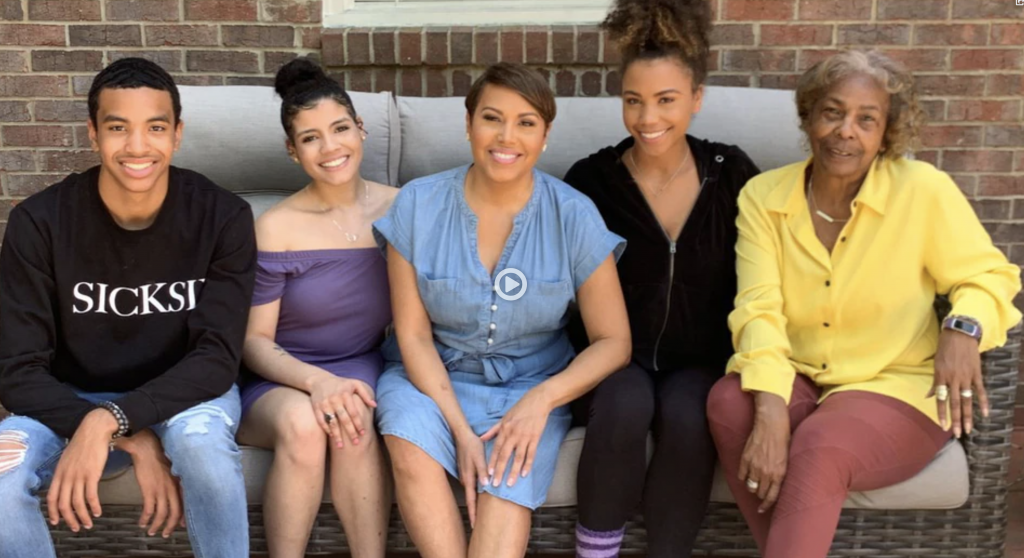Coping With Losing a Loved One
- Good Morning America’s T.J. Holmes fought back tears during Monday's broadcast as he became emotional about the passing of Atlanta news anchor Jovita Moore, who died from brain cancer last week.
- Moore "passed peacefully" on Thursday at 54 with members of her family by her side after a hard-fought battle with glioblastoma, an aggressive form of brain cancer.
- Grief is inevitable and essential when you're forced to say goodbye to a loved one, especially if you're losing that person to cancer; there's no one way to cope.
"From our ABC News family, we are remembering Jovita Moore this morning, a beloved anchor at ABC affiliate WSB-TV in Atlanta," Holmes said during Monday's GMA show.
Read MoreWATCH: @GMA honored Channel 2’s Jovita Moore this morning with a beautiful segment remembering her.@tjholmes Thank you for that touching story. We’re in tears with you this morning. pic.twitter.com/0GV5qrpTJZ
WSB-TV (@wsbtv) November 1, 2021
"Nothing to apologize for," fellow GMA anchor Robin Roberts told Holmes. "It was special when she would come and visit us here in the studio, and I absolutely agree with you her personality, so electric … and such a beautiful smile and beautiful person." (Roberts is a cancer warrior herself she was diagnosed with breast cancer in 2007. She also had to have a bone marrow transplant to treat myelodysplastic syndromes, a rare type of blood cancer.)
"She was a queen there in Atlanta," Holmes said of Moore. "I spent countless times with her and just she was a special lady."
Moore "passed peacefully" on Thursday with members of her family by her side after a hard-fought battle with glioblastoma, an aggressive form of brain cancer. She was 54. Channel 2, where Moore had worked since 1998, announced the news in a statement last week.
"It is with a broken heart that we announce the passing of Channel 2's Jovita Moore," the television station's statement reads. "Jovita died late Thursday night, seven months after being diagnosed with an aggressive form of brain cancer."
Doctors diagnosed Moore with brain cancer earlier this year after she underwent surgery to remove two masses in her brain. Those masses were cancerous tumors. She was subsequently diagnosed with glioblastoma, an aggressive form of brain cancer that also happens to be the most common, according to the American Cancer Society. It can affect the brain or spinal cord.

"I was concerned about why, all of a sudden, I was forgetful, and disoriented. Just not feeling myself, and feeling like I was in a fog," Moore said in April.
There's still no cure for glioblastoma and few treatment options for the aggressive cancer. But Moore didn't give up her fight, undergoing radiation and chemotherapy to slow the cancer's growth beginning right after she was diagnosed. In recent years, glioblastoma has claimed the lives of former Sens. John McCain and Edward "Ted" Kennedy, as well as President Joe Biden's son, Beau Biden. Jovita Moore is now unfortunately a name that’s joined that list.
Moore's legacy will live on for decades to come, but as her Channel 2 family notes, it was her spirit that truly made her stand out.
"Her awards and accolades are endless, but for those of us here at Channel 2, her heart and her spirit are what our newsroom was built around. Please join us in saying a prayer for her beautiful children and her mother."
Coping With Losing a Loved One to Cancer
Grief is inevitable and essential when you're forced to say goodbye to a loved one, especially if you're losing that person to cancer.
There's no one way to cope, but, in a previous interview with SurvivorNet, widower Doug Wendt shared his thoughts on the grieving process after losing his wife to ovarian cancer.
"We're never gonna move on, I don't even think I want to move on, but I do want to move forward," Wendt says. "That's an important distinction, and I encourage anybody who goes through this journey as a caregiver, and then has to face loss, to think very carefully about how to move forward."
While Holmes wasn't the caregiver for Moore during her final weeks, the feelings Wendt describes can surely be felt by her family members the ones who took care of her. But regardless if you're a cancer warrior's caregiver or not, Wendt's words hold true.
Everyone's grief journey looks and feels different, but therapy and support groups can also be wonderful options to explore. It's also important to keep in mind that time doesn't heal everything, but it certainly helps.
‘Therapy Saved My Life’: After Losing a Loved One, Don't be Afraid to Ask for Help
In an earlier interview with SurvivorNet, Camila Legaspi shared her own advice on grief after her mother died of breast cancer. For her, therapy made all the difference.
"Therapy saved my life," Legaspi says. "I was dealing with some really intense anxiety and depression at that point. It just changed my life. Because I was so drained by all the negativity that was going on, going to a therapist helped me realize that there was still so much out there for me, that I still had my family, that I still had my siblings."
Contributing: Abby Seaberg and Chris Spargo
Learn more about SurvivorNet's rigorous medical review process.


